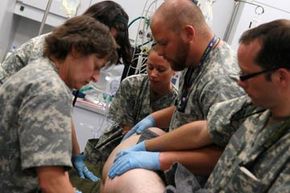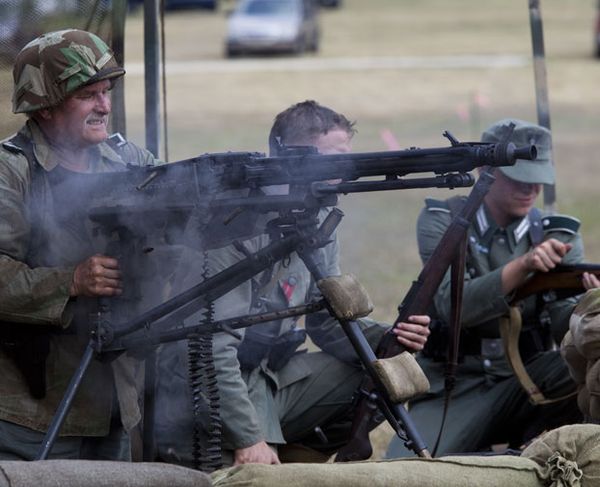You want to join the Army, serve your country and see the world. You'd also love to become a doctor -- after all, the healing professions are just the thing for you. Hey, why not do both?
The Army needs doctors -- and offers generous financial assistance to attract them. The American Medical Association estimates the average cost of four years of medical school to be more than $250,000 [source: U,S, Army] and the Army offers aid to pay for the whole package.
Advertisement
The pay for an Army doctor may not be as high as that of a provider in private practice. Basic pay for an Army captain is $44,543 a year [source: U.S. Army], while the median salary of a general practice civilian physician is $119,122 [source: Pay Scale]. But completing a residency in a qualified field can bring a $75,000 bonus [source: U.S. Army]. Promotions, allowances, board certification and re-enlistment bring more money.
Plus, Army doctors often work shorter hours than their civilian colleagues. They enjoy regular vacations and excellent benefits. They have a guaranteed job with generous retirement benefits.
Some aspiring physicians are attracted to the life of an Army doctor. You won't need to build a practice or manage a business. No worries about malpractice insurance, no dealing with health insurance company bureaucracy. You'll have opportunities to travel and to enjoy the camaraderie of the service.
But the military lifestyle is not for everyone. The bureaucracy and hierarchy of rank can be a drawback for some. Most Army doctors are deployed overseas at some point (though not necessarily to a war zone), away from their families. And keep in mind that once you enlist, it's your superior officers who decide where you go and what you do. They will try to honor your preferences, but there are no guarantees.
About 65 percent of Army doctors are reserve officers, serving part-time when not called to active duty [source: Darves]. The rest opt for a full-time military career. Almost all medical specialties are represented. You'll also find opportunities to do research, to teach, or to work in medical administration.
Read on for some valuable tips for becoming an Army doctor.
Advertisement



